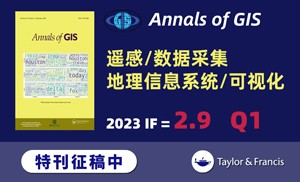当前位置:
X-MOL 学术
›
Asian Review of Accounting
›
论文详情
Our official English website, www.x-mol.net, welcomes your
feedback! (Note: you will need to create a separate account there.)
CEO age and analysts forecast properties
Asian Review of Accounting ( IF 2.3 ) Pub Date : 2019-11-11 , DOI: 10.1108/ara-02-2019-0054 Imran Haider , Nigar Sultana , Harjinder Singh , Yeut Hong Tham
Asian Review of Accounting ( IF 2.3 ) Pub Date : 2019-11-11 , DOI: 10.1108/ara-02-2019-0054 Imran Haider , Nigar Sultana , Harjinder Singh , Yeut Hong Tham
The purpose of this paper is to assess whether there is an association between CEO age and analysts forecast properties (particularly forecast accuracy and bias/optimism). CEOs, having the central role in managing firms, can significantly influence the financial and non-financial decisions in an organisation. Furthermore, having been identified as key culprits in past major accounting scandals, it is also important to identify the CEO characteristics that affect financial reporting decisions.,This study adopts the upper echelon theory on the relationship between CEO age and analysts forecast properties. The authors use a sample of 2,730 Australian firm-year observations for the period 2004–2013 drawn from IBES, Connect 4 and SIRCA databases.,The authors find that analyst forecast accuracy increases and bias (optimism) reduces with the CEO age. The authors conclude that earnings and related information provided to analysts improves with the CEO age, which increases the forecast accuracy and reduces bias (optimism). Additional results suggest that the positive (negative) effect of CEO age on forecast accuracy (bias) remains until the CEOs reach the age of their retirement age (65 years). The results remain consistent with a number of sensitivity tests and provide implication for stakeholders such as firms, analysts, auditors, financial statements users and regulators.,The authors demonstrate that the relationship between CEO age and analyst forecast properties is not linear but is, in fact, curvilinear substantiating concerns that CEOs that are much younger or much older do not help increase the quality of the information environment. Consequently, firms hiring CEOs in the right age bracket also benefit by having higher-quality information environment leading possibly to reduce costs such as those relating to debt and/or equity ultimately increasing firm value.,Empirical studies on the association between CEO age and analysts earnings properties in Australia are scarce and this paper contributes to the determinants of the analysts forecast accuracy and bias (optimism) and the CEO age literature.
中文翻译:

首席执行官年龄和分析师预测房地产
本文的目的是评估首席执行官年龄与分析师的预测属性(尤其是预测准确性和偏见/乐观主义)之间是否存在关联。在管理公司中发挥核心作用的首席执行官可以极大地影响组织中的财务和非财务决策。此外,在过去的重大会计丑闻中被确定为罪魁祸首,识别影响财务报告决策的首席执行官特征也很重要。本研究采用了高级年龄理论,探讨了首席执行官年龄与分析师预测属性之间的关系。作者使用了IBES,Connect 4和SIRCA数据库中的2004-2013年期间2,730个澳大利亚公司年度观察的样本。作者发现,随着CEO年龄的增长,分析师预测的准确性会提高,而偏见(乐观)会降低。作者得出的结论是,提供给分析师的收益和相关信息会随着CEO年龄的增加而提高,从而提高了预测的准确性并减少了偏见(乐观)。其他结果表明,CEO年龄对预测准确性(偏差)的正面(负面)影响一直持续到CEO达到退休年龄(65岁)为止。结果与许多敏感性测试保持一致,并为公司,分析师,审计师,财务报表用户和监管机构等利益相关者提供了启示。作者证明,CEO年龄与分析师预测属性之间的关系不是线性的,而是实际上,曲线化的担忧表明,年轻得多或年龄更大的CEO并不能帮助提高信息环境的质量。所以,
更新日期:2019-11-11
中文翻译:

首席执行官年龄和分析师预测房地产
本文的目的是评估首席执行官年龄与分析师的预测属性(尤其是预测准确性和偏见/乐观主义)之间是否存在关联。在管理公司中发挥核心作用的首席执行官可以极大地影响组织中的财务和非财务决策。此外,在过去的重大会计丑闻中被确定为罪魁祸首,识别影响财务报告决策的首席执行官特征也很重要。本研究采用了高级年龄理论,探讨了首席执行官年龄与分析师预测属性之间的关系。作者使用了IBES,Connect 4和SIRCA数据库中的2004-2013年期间2,730个澳大利亚公司年度观察的样本。作者发现,随着CEO年龄的增长,分析师预测的准确性会提高,而偏见(乐观)会降低。作者得出的结论是,提供给分析师的收益和相关信息会随着CEO年龄的增加而提高,从而提高了预测的准确性并减少了偏见(乐观)。其他结果表明,CEO年龄对预测准确性(偏差)的正面(负面)影响一直持续到CEO达到退休年龄(65岁)为止。结果与许多敏感性测试保持一致,并为公司,分析师,审计师,财务报表用户和监管机构等利益相关者提供了启示。作者证明,CEO年龄与分析师预测属性之间的关系不是线性的,而是实际上,曲线化的担忧表明,年轻得多或年龄更大的CEO并不能帮助提高信息环境的质量。所以,









































 京公网安备 11010802027423号
京公网安备 11010802027423号